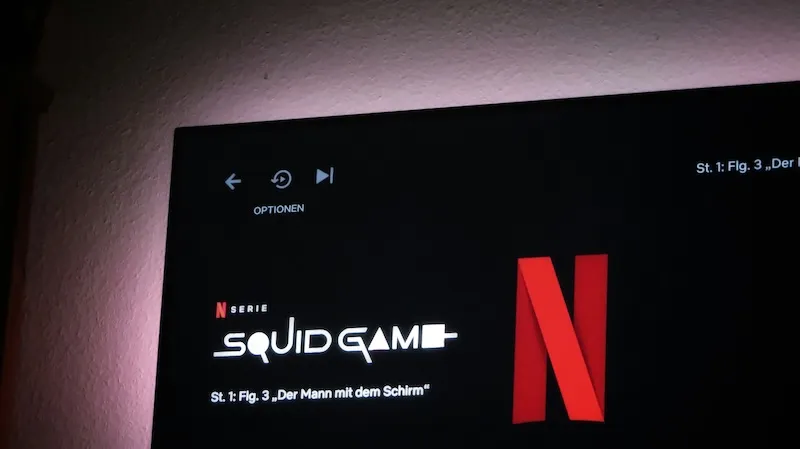A Dystopian Masterpiece That Reflects Our World’s Deepest Flaws

When Squid Game burst onto screens, it did not just introduce a thrilling survival game—it held up a mirror to society, exposing the complexities of human behaviour, morality, and the pervasive grip of economic inequality. Set in a dystopian yet eerily familiar world, this South Korean masterpiece captivated millions, blending heart-stopping suspense with poignant social commentary. At its core, Squid Game is a profound exploration of humanity—our struggles, our choices, and the systems that shape us.
If you are inspired to reflect on how stories like this can influence your own life, check out my post on how to embrace life with purpose.
The First Episode
A Test of Patience or a Window into Reality?

Let’s be honest—when you start watching Squid Game, the first episode might tempt you to switch it off. It begins in a grim, almost suffocating tone, introducing us to Seong Gi-hun, a man drowning in debt, disappointment, and poor decisions. The world we are drawn into feels bleak and unrelenting, a sharp reminder of the harsh realities faced by those at the bottom of society’s economic ladder.
For many, this initial glimpse might seem too heavy or even mundane. The desperation, the gambling, the strained relationships—it is not the kind of escapism we often seek from entertainment. Yet, it is this very grounding in reality that makes Squid Game so impactful. Stick with it, and you will find that what feels like a slow, hopeless introduction is actually the foundation for a rollercoaster of emotions and revelations.
The First 10 Minutes
Why I Almost Gave Up

When I first started watching Squid Game, I switched it off after just 10 minutes. It felt too bleak, too heavy, and honestly, not what I was in the mood for. The opening paints a stark picture of a man at rock bottom, and I was not sure I wanted to spend hours immersed in that world—let alone endure the blood. So much blood. And so gruesome. It was graphic, overwhelmingly intense, and at times, brutal.
But a few days later, I gave it another go—and before long, I was hooked. What began as cautious curiosity quickly transformed into an all-consuming need to know what would happen next. The suspense, shocking twists, and raw, emotional storytelling kept me glued to the screen. I nearly binge-watched the entire series, utterly captivated by the characters and the high-stakes world they were trapped in.
Squid Game taught me this: sometimes, the best stories take a little patience. Push past the discomfort, and you’ll find yourself immersed in a narrative that’s as thrilling as it is thought-provoking. At its heart, Squid Game is a profound exploration of humanity—our resilience, our flaws, and the choices we make when pushed to the edge.
What Squid Game Reveals About Humanity

The experience of watching Squid Game—hesitating at first, only to be drawn in and hooked—mirrors something essential about humanity: our ability to confront discomfort and find meaning in unexpected places.
At its core, Squid Game isn’t just a survival game. It is a brutally honest exploration of human nature. It asks: What drives us? How far will we go to survive? And what are we willing to sacrifice for hope or redemption?
The desperation of the characters reflects the deep inequalities of society, where people are often pitted against one another in a zero-sum game. Yet amidst the chaos, glimpses of kindness, teamwork, and moral conflict shine through. Even in dire circumstances, humanity is not one-dimensional. We are capable of immense cruelty, but also profound connection and selflessness.
For me, the show highlighted how easy it is to judge others from a distance. But once you step into their world—once you’ve “played the game,” so to speak—you begin to understand the complexities of their choices. It’s a reflection of the struggles we see in real life, albeit in a heightened, dystopian setting.
Ultimately, Squid Game forces us to confront the systems we live within and the values we hold. It challenges us to ask: What would I do? And perhaps more importantly, how can we create a world where no one has to face such impossible choices?
Why Squid Game Resonates

Squid Game is not just a show—it is a cultural phenomenon that has sparked global conversations about inequality, morality, and the human condition. Its success lies in its ability to balance gripping entertainment with profound social commentary, making us question the world we live in while keeping us on the edge of our seats.
Whether you are drawn to its suspenseful plot, its complex characters, or its thought-provoking themes, Squid Game is a reminder that great storytelling often requires us to sit with discomfort. It challenges us to look beyond the surface and confront the uncomfortable truths about ourselves and society.
This power of storytelling is something we celebrate at the Kampot Inclusive Reading Corner, held every Saturday and Sunday from 3:30 pm until 6:00 pm by the Kampot riverside. Just like Squid Game, stories have the ability to transform us, offering an escape from—or a deeper understanding of—the world around us, no matter how tough or challenging it may be.
So, if you have not watched it yet, give it a chance. Push through the initial heaviness, and you might just find yourself captivated by one of the most impactful stories of our time.
What’s Next?
The Anticipation for Season 3

I loved the second season just as much as the first, and with Season 3 supposedly on the way, the excitement is palpable. What will it bring? Will we see new characters, or will Gi-hun’s fight against the system continue? Will the games become even more twisted, or will the focus shift to the shadowy figures behind the organisation?
One thing’s for sure: if this show has taught us anything, it’s to expect the unexpected. The third season holds the potential to delve deeper into the show’s core themes—inequality, survival, and the human condition—while delivering the same heart-pounding suspense that made the first two seasons so unforgettable.
I, for one, can not wait to see where the story goes next.
Takeaway
The Future of Squid Game

With the show’s global success, a third season was inevitable. While details remain under wraps, fans have speculated about the direction the story could take. The introduction of new characters, a deeper exploration of the dystopian world, and a more intense examination of the psychological and societal impacts of the games are likely on the horizon.
One of the most intriguing aspects of the series is its ability to evolve while maintaining sharp social commentary. Creator Hwang Dong-hyuk has hinted that the next instalment will continue to explore the darker sides of human nature, possibly delving deeper into the forces that sustain the brutal system. Will we see new forms of the game? Or perhaps discover the origins of the masked elite who orchestrate it all?
Whatever happens, the success of the series lies in its ability to keep us questioning, thinking, and feeling. As we await Season 3, one thing is certain: the game is far from over.







